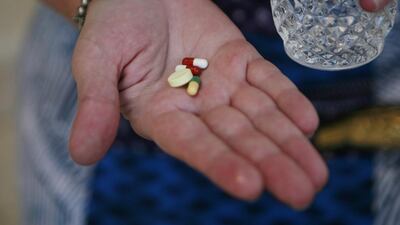Stockpiling medicine at home may seem more convenient than visiting a doctor or other medical professional for a check-up and a new prescription. However, this convenience comes with great danger. As The National reported, a study has shown that many people use leftovers from previous prescriptions or drugs brought from other countries to treat common illnesses because they fail to understand the gravity of self-medication and believe there is no need to regularly see a doctor.
There are several serious risks associated with this behaviour not least of which is the growing global resistance to antibiotic drugs fuelled by overconsumption. Antibiotics are the most commonly abused drugs and should only be taken in case of a bacterial infection that can be properly understood only by medical professionals. The overuse of antibiotics is a global issue that has led to an alarming rise of drug-resistant bacteria, making the treatment of infections such as pneumonia and tuberculosis more difficult.
Self-medication is also associated with problems such as misdiagnosis, excessive dosages, prolonged duration of use and the harmful mixing of drugs. People who take medication without consulting a doctor may not realise that they could be harming themselves or their children. Excessive dosages and drug interactions can be poisonous. The overuse of anti-inflammatories, such as Voltaren and ibuprofen, can lead to kidney problems, ulcers and internal bleeding. The list goes on and on.
This risk even applies to over-the-counter herbal remedies, vitamins, garlic and fish oil tablets. For example, taking multivitamins without consultation may be dangerous for patients who are on statins which are prescribed to help lower cholesterol levels. Even everyday drugs such as paracetamol and aspirin can react differently when combined to prescription medicines.
Mixing drugs and chemicals is a dangerous activity that can have potentially deadly results. It can also overburden the health system as doctors have to repair the damage that some people have inflicted on themselves. The belief that self-medication empowers patients to have greater independence over the management of minor illnesses is false, and the risks are simply too high.

